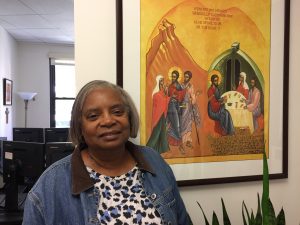IPS Coordinator of Formation on Spiritual Direction and Pastoral Counseling
Submitted by Carol Taliaferro, IPS Coordinator of Formation
Which is right for me? Spiritual Direction and/or Pastoral Counseling?
This is a really good question and one that comes up often. So let’s start by defining terms. First, spiritual direction, as the name implies, is primarily about the spiritual life: our relationship with God and the movement of the Holy Spirit in our lives. It is also involved in fostering personal growth in and deeper intimacy with God (as experienced in prayer and lived out in discipleship).
Counseling and psychotherapy are different. These terms are often used interchangeably so I’d like to make a distinction here as well. Counseling helps us to work through and resolve problems in our lives and relationships. Psychotherapy, on the other hand, goes deeper and is primarily focused on the emotional life and helps us to heal past hurts and to look at and resolve unhealthy patterns in our lives.
When should you pursue counseling/therapy vs. spiritual direction?
If you are struggling with emotional pain and negative patterns of behavior in your life, dealing with depression or mood disorders, anxiety, addictions or other diagnosable conditions, psychotherapy is your best option. Do you need guidance and support sorting out your life and your relationships? Counseling would be the way to go.
Are you trying to grow in your relationship with God and discern the movement of the Holy Spirit in your life? Then, spiritual direction is what you should pursue.
Keep in mind that each discipline is not mutually exclusive and you can participate in spiritual direction along with therapy and counseling.
(Adapted excerpt from: Spiritualdirection.com – Catholic Spiritual Direction – What is the Difference between Counseling and Spiritual Direction?)
“Pastoral counselors hold a unique position in the field of counseling. With their combination of theological training and advanced education in the behavioral sciences, they are poised to provide effective mental health counseling that is capable of respectfully integrating religious and spiritual components.”
(The Misunderstood Pastoral Counselor: Knowledge and Religiosity as Factors Affecting a Client’s Choice, Walker, et. al., Paper based on a program presented at the 2012 American Counseling Association Annual Conference and Exposition, San Francisco, CA, March 23-25,)
Reflection Corner
As each one has received a gift, use it to serve one another as good stewards to God’s varied grace. 1 Peter 4:10
Spiritual formation requires taking not only the inward journey to the heart, but also the outward journey from the heart to the community and ministry. Christian spirituality is essentially communal. Spiritual formation is formation in community. In community, we learn what it means to confess our weakness and to forgive each other. In community, we discover our own woundedness but also a place of healing. In community, we learn true humility. Without community, we become individualistic and egocentric. Therefore, spiritual formation always includes formation to life in community.
(Henri Nouwen, Following the Movements of the Spirit, Spiritual Formation with Christensen, M. J. & Laird, R. J.)
~~~~~~~~~~~~~~~~~~~~~~~~~~~~~~~~~~~~~~~~~~~~~~



